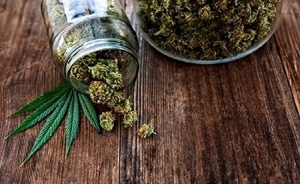Exploring Different Forms of Medical Marijuana Products Available at Dispensaries
الجسم
Medical marijuana is available in various forms, allowing patients to choose the most suitable method of consumption for their needs. Dispensaries play a crucial role in providing a diverse range of medical cannabis products, catering to individual preferences and medical conditions. This article aims to explore the different forms of medical marijuana products available at dispensaries, highlighting their unique characteristics, benefits, and considerations. By understanding these options, patients can make informed decisions and find the most effective and convenient method of utilizing medical marijuana for their therapeutic needs.
Section 1: Flowers and Pre-Rolls
Flowers, also known as buds, are the most recognizable form of medical marijuana. They are the dried and cured portions of the cannabis plant, typically consumed by smoking or vaporizing. Pre-rolls are pre-made joints or blunts filled with ground cannabis flowers. Key points to consider include:
-
Quick Onset: Smoking or vaporizing flowers provides rapid onset of effects, making it ideal for patients seeking immediate relief.
-
Variety of Strains: Flowers come in a wide range of strains, each with its own unique combination of cannabinoids and terpenes, allowing patients to choose strains that target their specific symptoms.
Section 2: Concentrates
Concentrates are highly potent extracts derived from cannabis flowers. They offer a more concentrated form of cannabinoids and terpenes. Common types of concentrates include:
-
Hash: Hash is made by separating the trichomes, the resinous glands containing cannabinoids and terpenes, from the flowers. It can be smoked, vaporized, or used in edibles.
-
Shatter, Wax, and Budder: These are solid or semi-solid forms of cannabis concentrates. They are often vaporized or dabbed using specialized equipment.
-
Oils and Tinctures: Cannabis oils and tinctures are concentrated liquid extracts that can be consumed orally or added to food or beverages. They are versatile and allow for precise dosing.
Section 3: Edibles
Edibles are food or beverage products infused with cannabis extracts. They provide an alternative to smoking and offer a discreet and convenient consumption method. Key considerations include:
-
Variety and Potency: Edibles come in a wide range of products, such as gummies, chocolates, baked goods, and beverages. Patients should pay attention to the potency and recommended dosage to avoid overconsumption.
-
Delayed Onset: The effects of edibles take longer to manifest compared to smoking or vaporizing. It is crucial to start with a low dose and allow sufficient time for the effects to be felt before consuming more.
Section 4: Topicals
Topicals are cannabis-infused lotions, creams, balms, and oils that are applied directly to the skin. They offer localized relief and are particularly useful for treating pain and inflammation. Key points to note include:
-
Non-Intoxicating: Topicals are non-intoxicating, meaning they do not produce psychoactive effects. They provide targeted relief without inducing a "high."
-
Easy Application: Topicals are user-friendly and can be applied directly to the affected area. They are absorbed through the skin, allowing for localized relief without affecting the whole body.
Conclusion
Dispensaries offer a wide array of medical marijuana products in various forms, catering to the diverse needs and preferences of patients. From flowers and pre-rolls to concentrates, edibles, and topicals, each form provides unique benefits and considerations. By exploring the different options available, patients can find the most suitable method of consumption for their specific medical conditions. It is essential to consult with knowledgeable dispensary staff and follow recommended dosage guidelines to ensure safe and effective use. With the availability of these diverse forms, patients have more flexibility and choice in utilizing medical marijuana to manage their symptoms and improve their overall well-being.









تعليقات